In the run-up to the 2016 Presidential election, there seemed to have been a lot of confusion about how Catholics were supposed to cast their votes in good conscience. The 2015 USCCB voter guide emphasizes the importance of life issues when considering candidates, for example, by stating that abortion “is never morally acceptable and must always be opposed.” The guide also states that Catholics are required “to care for and stand with newcomers, authorized and unauthorized,” and that immigration reform should include “a broad and fair legalization program with a path to citizenship; a work program with worker protections and just wages; family reunification policies; access to legal protections which include due process procedures,” etc. Unfortunately, the guide is somewhat ambiguous on just how to choose between two candidates when one is radically in favor of a pro-death agenda and the other takes a hard-line on immigration.
The answer can be found in Joseph Cardinal Ratzinger’s 2004 letter to Theodore Cardinal McCarrick where he reiterates Church teaching by saying, “Not all issues have the same moral weight as abortion and euthanasia.” He goes on to say that “if a Catholic were to be at odds with the Holy Father on the application of capital punishment or on the decision to wage war, he would not for that reason be considered unworthy to present himself to receive Holy Communion.” This example lends itself to the ‘abortion v. immigration’ debate of this past election. While support for Clinton was unacceptable for any Catholic, supporting Trump was acceptable even though it may have meant dissenting from the position of the Catholic bishops.
Although some Catholic clergy clearly agree with what Cardinal Ratzinger says, it appears that others do not. Fr. John Lankeit of the Diocese of Phoenix said in a homily before the election that if one votes for the candidate who promotes and intends to expand abortion, one’s “soul will be in grave danger.” However, Bishop Robert McElroy of the Diocese of San Diego said in America Magazine also before the election that “the central foundation for an ethic of discipleship in voting for the Catholic community lies not in the embrace of any one issue or set of issues.” Interestingly, His Excellency said in the San Diego Union-Tribune more recently that regarding mass deportations, the Church “can never acquiesce in or cooperate with such a grave evil.”
So just what is going on lately? It seems that Church authorities have taken a very passionate and proactive position regarding immigrants, notably those here illegally. The bishops’ cries of “We are with you,” “We will never leave you alone,” and “We have your back,” are not like anything we have heard or seen from them before, even with regard to defending the innocent victims of abortion. Although their zeal might be explained by their insistence that our immigration laws are “broken,” aren’t the laws that allow, protect, and even promote abortion far worse?
As Robert Spencer, noted critic of radical Islam, said in an interview with Michael Matt concerning the Church’s more recent positions on Islamic immigration in particular and Islam in general:
These matters of prudential judgment and matters of opinion, which is all that they are, are elevated to the status of dogma while the genuine dogmas of the Church are ignored, and the Church seems to be more interested in enforcing these opinions rather than in enforcing its own teachings within the Catholic realm.
It is interesting to contrast the number of bishops who support what looks to be unlimited and unscreened immigration with the number of those who defend the four cardinals who recently issued their Dubia. Could an attempt to change not only Catholic social teaching, but also Catholic moral teaching be underway?
For years, American Catholics have been expected to tolerate pro-abortion supporters within their parishes, universities, etc. However, those critical of illegal immigration within these same institutions can pay a heavy price. When political commentator Laura Ingraham was to speak at a pro-life event in the Diocese of Yakima last year, Bishop Joseph Tyson had a letter sent to each pastor telling them not to promote the event in their parishes. Why? It was because Ingraham’s position on immigration differs from that of the bishops. Her response to the action taken against her was to ask, “So are we now saying that Catholics should ignore the rule of law and that only those who seek to dismantle our borders can speak credibly on pro-life issues?” Has immigration replaced abortion as the new ‘litmus test’ for determining who is a good Catholic and who is not? Are pro-lifers now expected to change their opinions about immigration if need be in order to appease the bishops?
Perhaps what is going on lately is that we have entered a new era of Clericalism in which the bishops seek to impose their opinions not only within the political realm, but also within the Church. This is clear from the reactionary position they have taken against those who disagree with them. Their cries of “Nativist,” “Racist and xenophobic,” and “Anti-immigrant,” are unlike anything we have heard or seen from them before, especially since those cries are also directed at their own flocks. Although their zeal might be explained by their desire to help people in need, shouldn’t they also be interested in people who may not agree with them and are not required to do so? Don’t their actions, however well intentioned, infringe upon the rights of the laity both as citizens and as Catholics?
The bishops have asked the faithful to look to their own immigrant pasts in order to have empathy for those who come to this country both legally and illegally. However, unlike today’s immigrants, 19th Century immigrants for the most part had to break all ties to their former homelands since there was no easy way to stay in touch, much less ever go back to visit. Also, they often quickly stopped teaching their native languages to their children in order to better assimilate. In addition, there was no social welfare system to support them and living conditions were far bleaker then than they are now. Yet, like today’s immigrants, they had shepherds who knew “the smell of the sheep.” Clearly, bishops take great interest in immigrants, and they typically don’t make slanderous and libelous statements about them.
But what about the tech worker who has to train her H-1B Visa replacement, or the laborer who constantly loses contracts to illegal workers who underbid him? And what about those immigrants who choose to come to here legally, but have to get in line behind those who come here illegally? Borders matter, and they matter to a lot of people. Just look at places like Ukraine. It is disingenuous to reduce the immigration debate to be only about the struggles immigrants face when the security of the nation, even the stability of the world is at stake. The fact that the bishops were “surprised” by the outcome of the election may have meant that they got their information about what the country was thinking from certain news outlets rather than by reaching out to the faithful. Their call for “unity” between Trump and Clinton voters seems like nothing more than a mandate to submit to their position on immigration. It is hard to imagine that there would be the same call for unity if Clinton had won and not Trump.
Although it is laudable and even necessary to defend the legitimate rights of immigrants, why does the Church appear to be only on their side? Isn’t the bishops’ shaming of those who don’t agree with them really just a red flag? Perhaps there’s more here than meets the eye. One reason that Church authorities take such a unilateral position on immigration may be because it was they who helped create the current situation in the first place and they don’t want to walk it back. Church groups such as the U.S. Conference of Catholic Bishops, Catholic Charities, and the Catholic Campaign for Human Development have been promoters of the sanctuary movement for decades (see the article “The Religious Origins of the Sanctuary Movement” on the Accuracy in Media website, 7/24/15). It is possible that many people in the Church have been motivated to help immigrants out of sheer compassion for others, but the sanctuary movement is troubling both from a legal standpoint and because of its Marxist roots.
Another reason that Church authorities are so one-sided on immigration may be because immigrants are appealing in ways that the rest of the population just isn’t. People in desperate situations require immediate material relief and it is extremely gratifying to provide such relief. But such situations are not ordinary — at least they shouldn’t be. The day-to-day workings within the Church can be less than inspiring at times. Add to that any baggage, like that from the child sex-abuse scandals, and the work can be downright desultory. It is important for the clergy to feel like they are successful at what they do, like any man in his chosen profession. They need to receive the respect and gratitude that is owed to them as our shepherds and leaders. So unlike Catholics established in this country, immigrants (especially those here illegally) might be more likely to extend respect and gratitude to the clergy because the Church probably has aided them in some way in their quest to remain here.
Additionally, support for immigrants has been applauded by two highly influential entities, Pope Francis and the American Left. Pope Francis has wasted no time in vigorously encouraging countries to accept more immigrants while condemning those who seek to halt or even question the practice. To the bishops, the Pope is their boss, so objecting to what he has to say can be very difficult. Similarly, the American Left is demanding nothing less than open borders while attacking those, both verbally and physically, who oppose them. For too many years, the bishops have had to uphold positions that make them very unpopular with the American Left (like the prohibition of artificial birth control), and being ostracized by such an influential segment of society for so long can take its toll. Although the bishops’ position on immigration raises the hackles of some of the faithful, it not only puts the bishops in good standing with the Pope, but also with the American Left – a small price to pay, perhaps.
Lastly, more immigration may or may not mean more people in the pews, but it always means more money for the Church. It is no secret that the government pays the Catholic Church large amounts of money to help resettle refugees. According to the article “Is the $91 Million Obama Refugee Grant to the USCCB tied to Bishops’ Silence on Hillary?” on the Lifesite website, 9/8/16:
The figures available on the USASpending.gov website show the USCCB garnering more than $91 million for refugee resettlement programs, more than $202 million going to Catholic Charities, which also serves refugees, and the Boston-based ICMC getting more than $17 million in governmental funds stipulated entirely for U.S. refugee resettlement.
With that much money coming in from the government, one wonders how it is possible for the bishops not to compromise themselves in some way. Aren’t Church authorities supposed to collect money directly from the faithful as opposed to receiving money from the government? Doesn’t being on the dole like that violate the Church’s own principle of subsidiarity?
Actually, Church authorities are applying this principle of taking care of matters at the most local levels first when they advocate for individual parishes to provide sanctuary for those here illegally (see the reports from the recent U.S. Regional World Meeting of Popular Movements). Migration issues, however, are best handled at the federal level and not the local level, since it is the federal government that sets international migration policy and federal law enforcement that controls international borders. How ironic that the faithful are expected to surrender their tax money and charitable donations to national agencies that resettle refugees, yet these same people within their own parishes are supposed to risk imprisonment by thwarting immigration laws.
It’s not racist and xenophobic to say that immigration laws need to be followed in order to ensure that everyone’s rights are respected. At a hearing on whether or not to make California a ‘Sanctuary State’, California State Senate President Pro Tem Kevin De Leon said:
Half of my family would be eligible for deportation under the executive order, because they got a false Social Security card, they got a false identification, they got a false driver’s license prior to us passing AB 60, they got a false green card, and anyone who has family members who are undocumented know that almost entirely everybody has secured some sort of false identification.
Perhaps the main opposition to illegal immigration is simply that it is illegal, and that law-abiding citizens resent the fact that people are able to manipulate the system to their own advantage. The euphemism ‘undocumented’ doesn’t change the reality of what it going on, and its use only assigns guilt to its critics.
It seems, then, that immigration is not so much a moral problem as it is a management problem. The idea of letting in anyone who desires to come here at anytime for any reason is simply not tenable. We need immigration reform, but not the kind that is nothing more than ‘citizenship upon demand’. We didn’t start with a refugee crisis that needed to be remedied with open borders. We already had relatively open borders that have contributed immensely to, if not created, a refugee crisis. Simply put, immigration needs to be controlled by our citizens, not by people seeking to come here. Immigrating is not easy, it means sacrifice, especially on the part of those coming here. There should be elements of all cultures that find homes here, but not at the expense of the American culture at large. Immigrants need to ask themselves “what do I need to do to be a citizen,” which can be compared to people joining the faith who have to ask themselves “what do I have to do to be a Catholic.”
Some specific ideas for creating a robust legal immigration program include mandating that employers offer jobs first locally, then statewide, and last nationally before offering them to foreigners. Deportation fees should be paid for by those employers who have hired illegal workers, not by taxpayers, if at all possible. Emphasis on assimilation can’t be stressed enough. English needs to be made our only official language. Access to non-emergency benefits and schools should be given only to those allowed to be here. Of course, anyone in dire need should get temporary protection immediately, but refugees and asylum seekers should not be granted the privileges of citizenship before those who have waited longer. Finally, we need to partner with countries interested in tackling the problems that cause migration. Honduras, for example, has asked us to aid them with a “mini-Marshall Plan” in order to rebuild their society torn apart by the drug trade that has led to so much migration.
When it comes to their demand for relatively unrestricted immigration, the bishops themselves don’t seem to have an end-game in mind. For all of their good intentions, without following government regulations, their idea of “welcoming the stranger” simply boils down to nepotism. This action in which those in power put themselves above the law by showing favoritism toward those of their choosing also lends itself to their idea of “discernment” that would allow adulterers and even non-Catholics to receive communion. What’s right and what’s wrong depends on what particular government workers or clergy say, not on what the rules say. It is as if rules need to be abrogated in order to achieve justice. But good rules are meant to protect everybody, especially the poor, from being abused by those in power.
In conclusion, this “seamless garment” approach to issues as wide-ranging as abortion and immigration means that there is no hierarchy of values. Nothing, then, can be said to be intrinsically evil. This can only lead to a “dictatorship of relativism” about which Pope Benedict XVI warned us. One wonders if the apparent lack of reasoning regarding recent Church teaching indicates that the Church is no longer run by theologians and philosophers, but perhaps by social scientists and mid-level marketing managers. Metaphysics was once the science behind religion. Now is it something like communication theory? We see this same “newness” in the Mass that was once said ad orientem, but now is said versus populum. The focus is no longer on God, but on His people, and we can only fail miserably unless He is our focus.

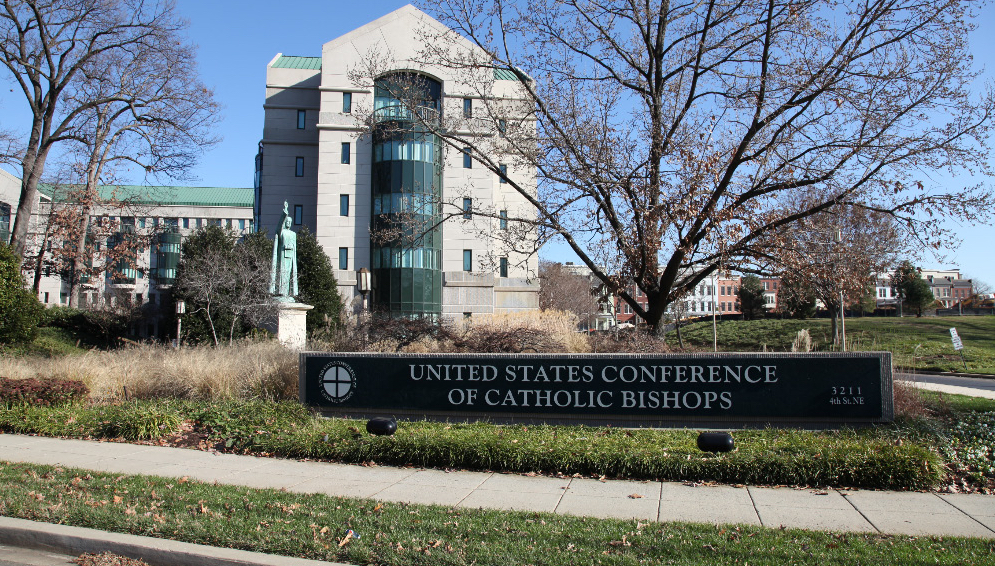

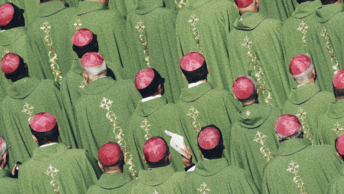
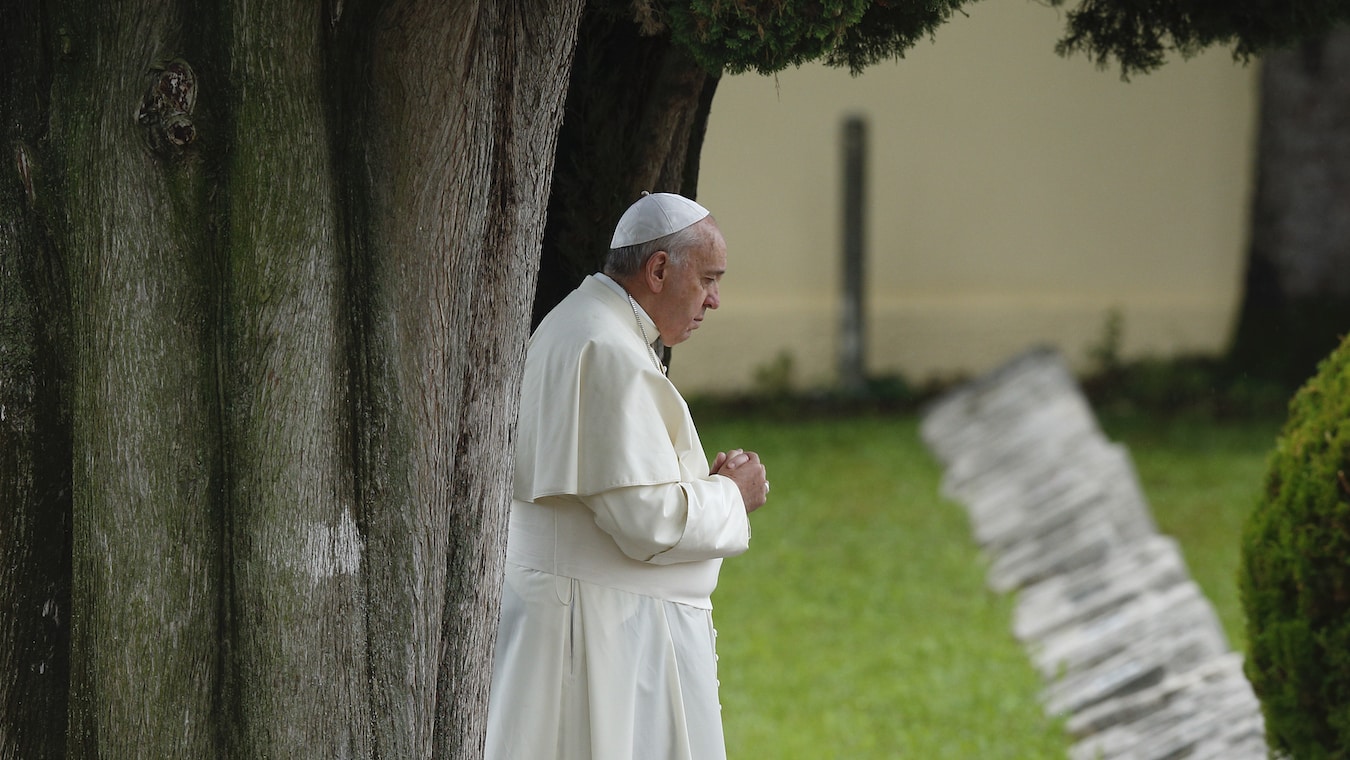
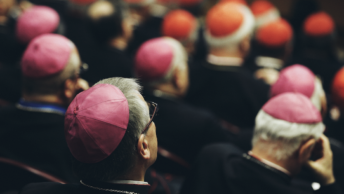
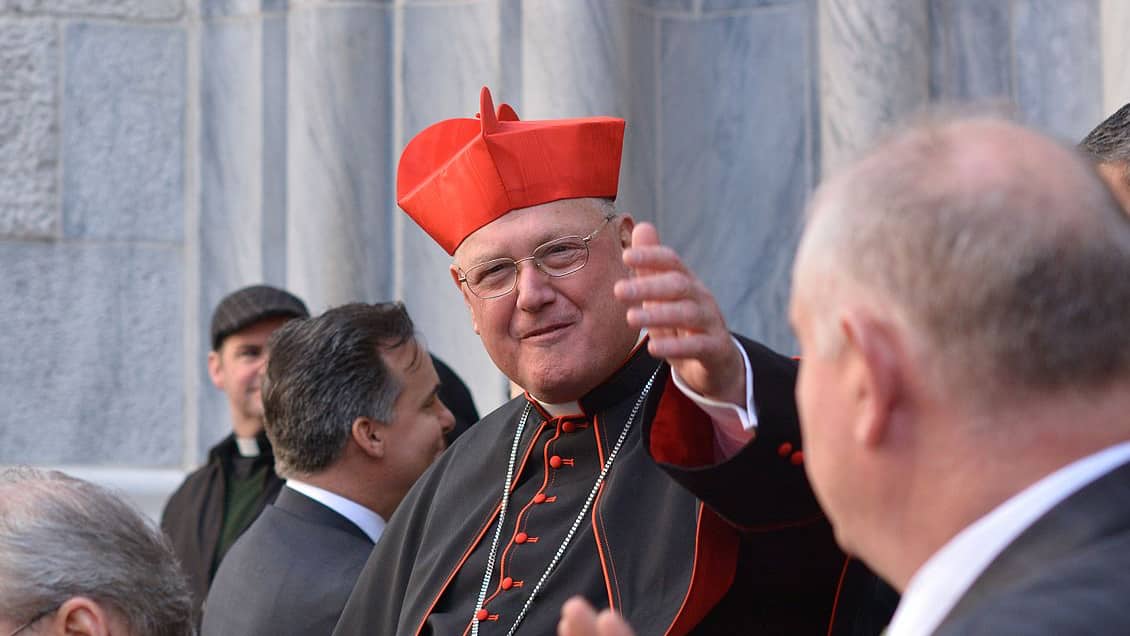


[…] LAWLESS, BORDERLESS FRANCISCHURCH: “METAPHYSICS WAS ONCE THE SCIENCE BEHIND RELIGION. NOW IS IT SOMETHING LIKE COMMUNICATION THEORY?” […]
Fantastic analyst. The US Church is selling its soul for financial and political gain which is borderline Satanic when there is no reason for anyone who calls themselves Catholic, Christian or moral should ever vote for national candidates like Hillary, Obama, Pelosi etc etc. The national Democrat Party has sold their soul to Satan.
You are who you worship and who you vote for.
Amen, Kevin! I agree whole heartedly!!!✝️??
This is the BEST article ever written on abortion and immigration!!! How can we get it in every Diocesan newspaper in the country? Or on Facebook?
Wonderful, truthful read!!!
This is the best ‘read’ I have EVER read on the problems facing this country!!!!
How can we get this in every Diocesan paper in the country? And on Facebook!
Wonderful, smart insight! Thank you!